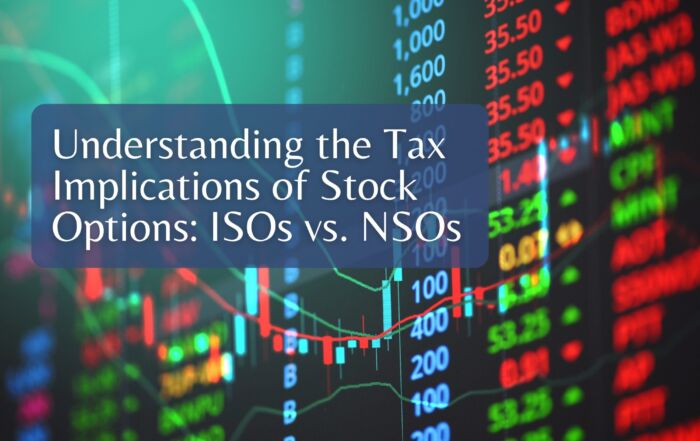Is an ETF More Risky Than a Mutual Fund?

Pros and Cons of ETFs and Mutual Funds
When it comes to investing, the options can be overwhelming. From stocks to bonds, real estate to precious metals, there are a variety of ways to grow your wealth. Two popular investment options are exchange-traded funds (ETFs) and mutual funds. While both have their pros and cons, many people wonder whether ETFs are riskier than mutual funds. In this blog post, we’ll explore the similarities and differences between these two investment options, and help you determine which one may be right for you.
What Are ETFs and Mutual Funds?
An ETF is a type of investment fund that holds a diversified portfolio of stocks, bonds, commodities, or other securities. Like stocks, ETFs are traded on stock exchanges and can be bought and sold throughout the day. The price of an ETF is determined by supply and demand and can fluctuate throughout the day in response to market conditions.
A mutual fund, on the other hand, is a type of investment fund that pools money from a large number of investors to purchase a diversified portfolio of stocks, bonds, or other securities. Unlike ETFs, mutual funds are priced once per day after the markets close. You can buy or sell shares in a mutual fund through the fund company, usually at the end-of-day net asset value (NAV) price.
Are ETFs More Risky than Mutual Funds?
The short answer is that it depends on the specific ETF or mutual fund in question. In general, ETFs can be more risky than mutual funds because they are traded on stock exchanges. Their value can fluctuate throughout the day in response to market conditions. This means that if the market takes a dip, the value of your ETF could drop quickly, and you could experience significant losses.
On the other hand, mutual funds are priced once per day, so the value of your investment won’t fluctuate as much throughout the day. This can provide a sense of stability and reduce the risk of sudden losses.
However, it’s important to note that the underlying investments held by the ETF or mutual fund can also impact their risk level. For example, a mutual fund that invests in high-yield bonds may be riskier than an ETF that invests in blue-chip stocks. It’s essential to consider the investment objectives, strategies, and holdings of each fund before making an investment decision.
Benefits of ETFs
One of the biggest benefits of ETFs is their flexibility. Because ETFs are traded like stocks, you can buy and sell shares at any time during market hours. This makes them a convenient investment option for those who want to quickly respond to market changes.
ETFs are also often more tax-efficient than mutual funds. Because ETFs are traded on an exchange, investors can buy and sell shares without triggering a taxable event. This means that you won’t have to pay taxes on any capital gains until you sell your ETF shares.
Benefits of Mutual Funds
One of the biggest benefits of mutual funds is that they are easy to understand and access. Many mutual funds are actively managed, which means that a professional fund manager is responsible for making investment decisions on behalf of the fund’s investors. This can be a good option for those who don’t have the time or expertise to manage their investments themselves.
Mutual funds are also typically more accessible to smaller investors. Many mutual funds have low investment minimums, making them an affordable option for those who are just starting out.
Which is better?
In conclusion, both ETFs and mutual funds have their pros and cons, and the right choice for you will depend on your investment objectives.
Have more questions? Contact Us
Casey Smith
President, Wiser Wealth Management
Share This Story, Choose Your Platform!
Wiser Wealth Management, Inc (“Wiser Wealth”) is a registered investment adviser with the U.S. Securities and Exchange Commission (SEC). As a registered investment adviser, Wiser Wealth and its employees are subject to various rules, filings, and requirements. You can visit the SEC’s website here to obtain further information on our firm or investment adviser’s registration.
Wiser Wealth’s website provides general information regarding our business along with access to additional investment related information, various financial calculators, and external / third party links. Material presented on this website is believed to be from reliable sources and is meant for informational purposes only. Wiser Wealth does not endorse or accept responsibility for the content of any third-party website and is not affiliated with any third-party website or social media page. Wiser Wealth does not expressly or implicitly adopt or endorse any of the expressions, opinions or content posted by third party websites or on social media pages. While Wiser Wealth uses reasonable efforts to obtain information from sources it believes to be reliable, we make no representation that the information or opinions contained in our publications are accurate, reliable, or complete.
To the extent that you utilize any financial calculators or links in our website, you acknowledge and understand that the information provided to you should not be construed as personal investment advice from Wiser Wealth or any of its investment professionals. Advice provided by Wiser Wealth is given only within the context of our contractual agreement with the client. Wiser Wealth does not offer legal, accounting or tax advice. Consult your own attorney, accountant, and other professionals for these services.





